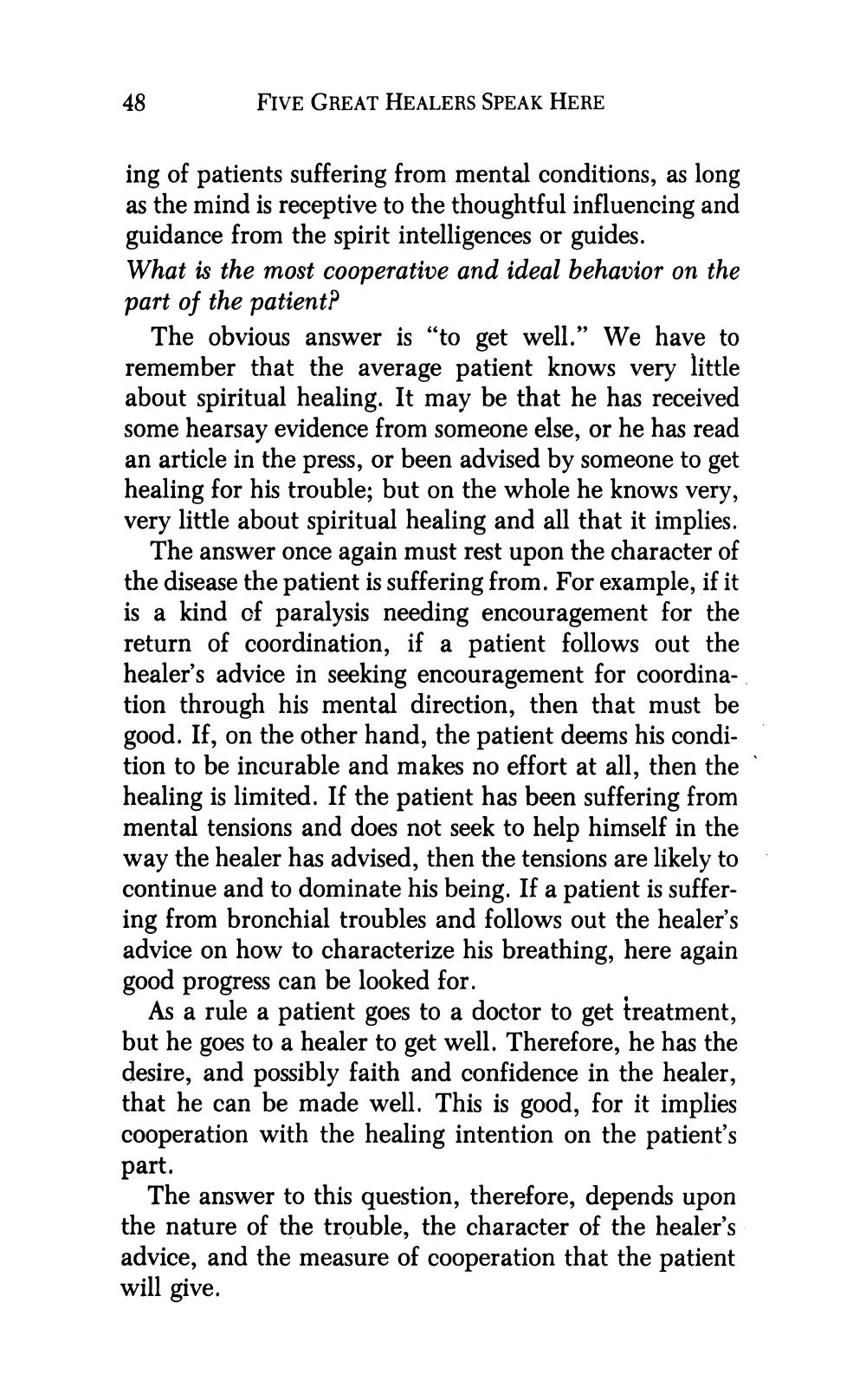________________
10
FIVE GREAT HEALERS SPEAK HERE
ing of patients suffering from mental conditions, as long as the mind is receptive to the thoughtful influencing and guidance from the spirit intelligences or guides. What is the most cooperative and ideal behavior on the part of the patient?
The obvious answer is “to get well.” We have to remember that the average patient knows very little about spiritual healing. It may be that he has received some hearsay evidence from someone else, or he has read an article in the press, or been advised by someone to get healing for his trouble; but on the whole he knows very, very little about spiritual healing and all that it implies.
The answer once again must rest upon the character of the disease the patient is suffering from. For example, if it is a kind of paralysis needing encouragement for the return of coordination, if a patient follows out the healer's advice in seeking encouragement for coordination through his mental direction, then that must be good. If, on the other hand, the patient deems his condition to be incurable and makes no effort at all, then the healing is limited. If the patient has been suffering from mental tensions and does not seek to help himself in the way the healer has advised, then the tensions are likely to continue and to dominate his being. If a patient is suffering from bronchial troubles and follows out the healer's advice on how to characterize his breathing, here again good progress can be looked for.
As a rule a patient goes to a doctor to get treatment, but he goes to a healer to get well. Therefore, he has the desire, and possibly faith and confidence in the healer, that he can be made well. This is good, for it implies cooperation with the healing intention on the patient's
part.
The answer to this question, therefore, depends upon the nature of the trouble, the character of the healer's advice, and the measure of cooperation that the patient will give.




